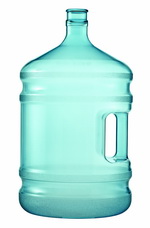|
Fluoride – The Key To Dental HealthFluoride is the ionized form of fluorine the chemical element of symbol F and atomic number 9. Fluoride is actually the nutrient derived from the element. The nutrient mineral has the ability to prevent dental cavities, and its primary mode of action is on the bones and teeth, promoting the mineralization of bones and teeth by promoting the deposit of calcium and phosphorus in these areas.
The uniqueness of this mineral is that cavity prevention activity begins in the mouth and when foods such as carbohydrates are eaten oral bacteria multiplies and produces acids that eat away tooth enamel. After food passes on from the mouth, remineralization or replacement of tooth enamel begins, and this remineralization has to keep pace with demineralization or the teeth would be riddled with cavities. The mineral decreases the demineralization or loss of tooth enamel and speeds up the remineralization process, as well as inhibiting bacterial growth. Dietary Recommendations The average intake (AI) is for adult men 4 milligrams/day and for adult women 3 milligrams/day. For infants aged 0 to 5 months is 0.01 milligrams/day and for infants aged 6-11 months is 0.5 milligrams/day. Mineral Sources The primary source of the mineral is water and other liquid beverages to which the mineral is naturally present or has been added. The mineral is also found in toothpaste. Water - The Primary Mineral Source
Mineral Deficiency Deficiency of the mineral increases the risk of dental cavities and may cause problems with the bones. Mineral Toxicity During the development of the teeth prolonged intake of the mineral can cause a condition called fluorosis, where white specks appear on the teeth. In its severe form there can be brownish stains on the teeth and the teeth can be weakened. The treatment of the condition is to monitor the consumption of the mineral to make sure that too much is not consumed.
For other information on nutrition some great references are: • Nutrition – Fourth Edition by Paul Insel, Don Ross, Kimberley McMahon, and Melissa Bernstein • The Vitamin Alphabet – Your guide to vitamins, minerals and food supplements by Dr. Christiana Scott-Moncrieff MB, CHB, MFHOM
Nutrients In Food
|







